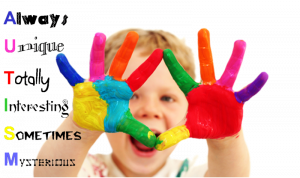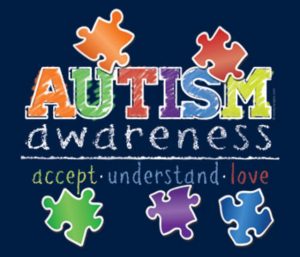Looking back during my college days, it was a gloomy day, the first day of classes for midyear semester, and I came in late. I managed to wind up with this guy whom I later found out had autism. I noticed that he wasn’t able to catch up with the group activities. And sad to say, he had quite poor social skills and had difficulty expressing himself. He had a very short attention span that he couldn’t quite understand the lectures the professors were discussing. Somehow, I found him to be very friendly, and he sometimes tried his best to participate in the discussion in spite of his condition.
In my mind, over and over, I asked myself how he was able to manage to get into college, and so out of curiosity, I tried to do some research about the illness. That’s when I found out that there are many organizations and autism influencers who help individuals with ASD.

“Autism is a complex developmental disability that causes difficulties in many areas, with varying degrees of severity, most notably with social interaction and communication.” Karla Helbert, LPC, E-RYT, C-IAYT explains. Autism starts early from the day of birth and may show signs during the first six months. But up to this date, experts are still not sure what really causes a child to have autism. Some think it is a chemical imbalance and deprivation of oxygen in the brain during childbirth.
Individuals with autism have poor social skills and a little bit slower than regular people, but some can manage to get to college. We may think of them as less fortunate that they are unable to do what an ordinary person does, like talking in a normal phase, expressing themselves appropriately, doing tasks on a given timeframe, and proper behavior. But all these don’t stop them, because they, too, want to contribute something to the community. Therefore, we must consider what not to say to individuals with autism disorder.

“Being diagnosed with Autism does not have not to impact you negatively. People with Autism can live fulfilling and meaningful lives. It is about learning the tools and skills that can help lead to success.” John Cutrone, LMHC, MCAP, CAS said. There are many ways on how students can be of help and socialize with individuals with ASD, and these include:
- Being aware that he has poor social skills, you can start by earning his trust. A simple smile always works when trying to break the ice. Be friendly by being unjudging. Share simple jokes, and do high fives. You can do little physical contacts like touching his shoulders or patting his back. Establishing rapport and being friendly will make him want to converse with you and focus more on what you are saying, or pay more attention to what you are instructing him to do in social groups or activities.
- Individuals with autism are very self-conscious. Try not to look or stare whenever some atypical mannerisms start to show. They quickly become anxious and nervous being around other people.
- Showing graphic representation or starting the conversation with a story helps an individual with autism understand the topic. This story may be your experience throughout the day or personal anecdotes.
- A person with ASD lacks the interpretation of emotions. Using the tone of your voice in the conversation makes it easier for him to interpret the feelings you have in your stories. Doing hand signs also improve how he perceives what the story is about and will benefit him to know the amount of the emotion in the story.
- Be aware of the shifts in his mood by paying more attention to what he is doing or what his reaction is before engaging to make a conversation. Being patient with an autistic person is tough, especially, when you have no idea about his emotions. You have to maintain a good mood by keeping things organized.
- Listening and understanding what the person is trying to say will give you insights on what his motives are in having the conversation with you. Listen while making eye contact intently, but never in a judging manner, and never make fun of what he is trying to tell you (not unless he’s trying to be funny). It can help him open up during a conversation.

“People with ASD are at increased risk for depression, anxiety, obsessive-compulsive disorder (OCD), or attention deficit hyperactivity disorder (ADHD).” Eva A. Mendes LMHC explains. Yes, socializing with an autistic person may be tough, but guiding and helping him to cope with his anxiety despite the many changes and interventions of ASD is worth a lot especially if what they want is to be able to contribute to our society and not be a burden.